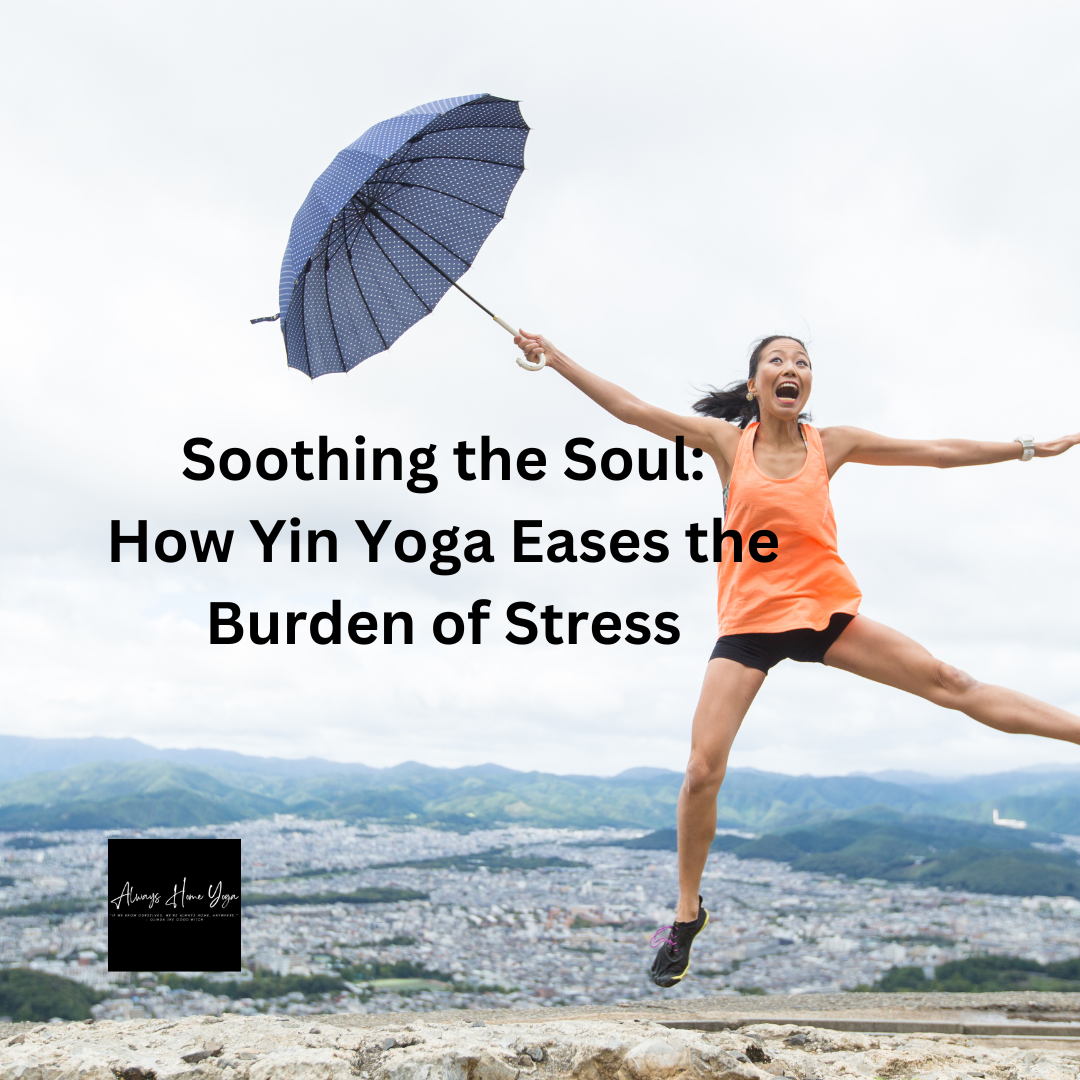Bonus: Get a free Yin Yoga practice video by choosing the Gentle Healing practice below.
Stress has become an unwelcome companion for many of us. Work, relationships, and nonstop information bombardment all demand much. Stress can feel overwhelming. Fortunately, amidst the chaos, there exists a serene oasis: Yin Yoga. This gentle yet deep practice offers a sanctuary for the soul. It provides a pathway to release tension and find peace within.
The Essence of Yin Yoga
Yin Yoga is slow and meditative. It targets the body’s deep connective tissues, like ligaments, tendons, and fascia. Dynamic yoga focuses on muscle engagement and movement. In contrast, Yin Yoga involves passive stretching. In it, you hold postures for an extended period, usually one to five minutes or even longer.
At first glance, Yin Yoga might seem deceptively simple. However, its simplicity belies its transformative power. By holding poses for a long time, practitioners get the chance to delve deep into their bodies and minds. They face both physical and emotional tensions. These tensions may have been buried beneath the surface.
Easing into Stillness
One of the defining features of Yin Yoga is its emphasis on stillness and surrender. The world glorifies constant activity and productivity. So, simply being can feel revolutionary. As we settle into a pose, we let gravity gently coax our bodies deeper. We learn to let go of the need to control and to instead embrace the present moment as it is.
In this surrender, the nervous system shifts from fight-or-flight to rest-and-digest. This change triggers a cascade of physical responses. It includes a drop in heart rate, blood pressure, and cortisol levels. Cortisol is the stress hormone. Tension melts away from the body. The mind follows, opening space for clarity, self-examination, and deep relaxation.
Cultivating Awareness and Acceptance
Yin Yoga also serves as a powerful tool for cultivating mindfulness and self-awareness. As we hold a pose, we are told to feel sensations in the body. We should not judge or resist them. This practice is non-reactive. It fosters a deeper understanding of ourselves. It helps us become more attuned to our physical feelings, thoughts, and emotions.
Through this self-inquiry, we may uncover hidden tension and trauma in the body. We create the conditions for healing. We do this by facing these feelings with curiosity and compassion. We should avoid avoidance and aversion. In essence, Yin Yoga becomes a journey of self-discovery. It is a sacred exploration of the body, mind, and spirit.
Finding Stillness in Motion
The world is always moving and noisy. Yin Yoga offers a sanctuary of silence. It is a precious chance to retreat inward and find our essence. In each pose’s gentle embrace, we find that true relaxation comes from the inside. It’s not from outside circumstances but from the quiet depths of our hearts.
As we finish our practice, we carry with us calm and toughness. They reach into every part of our lives. We use mindfulness, self-awareness, and self-compassion. With them, we navigate the ups and downs with grace and calm. In the gentle rhythm of our breath, we find solace. In the stillness of our bodies, we find peace. And in the quiet sanctuary of our souls, we find home.
Choose your Gentle Yin Yoga practice video bonus below.

